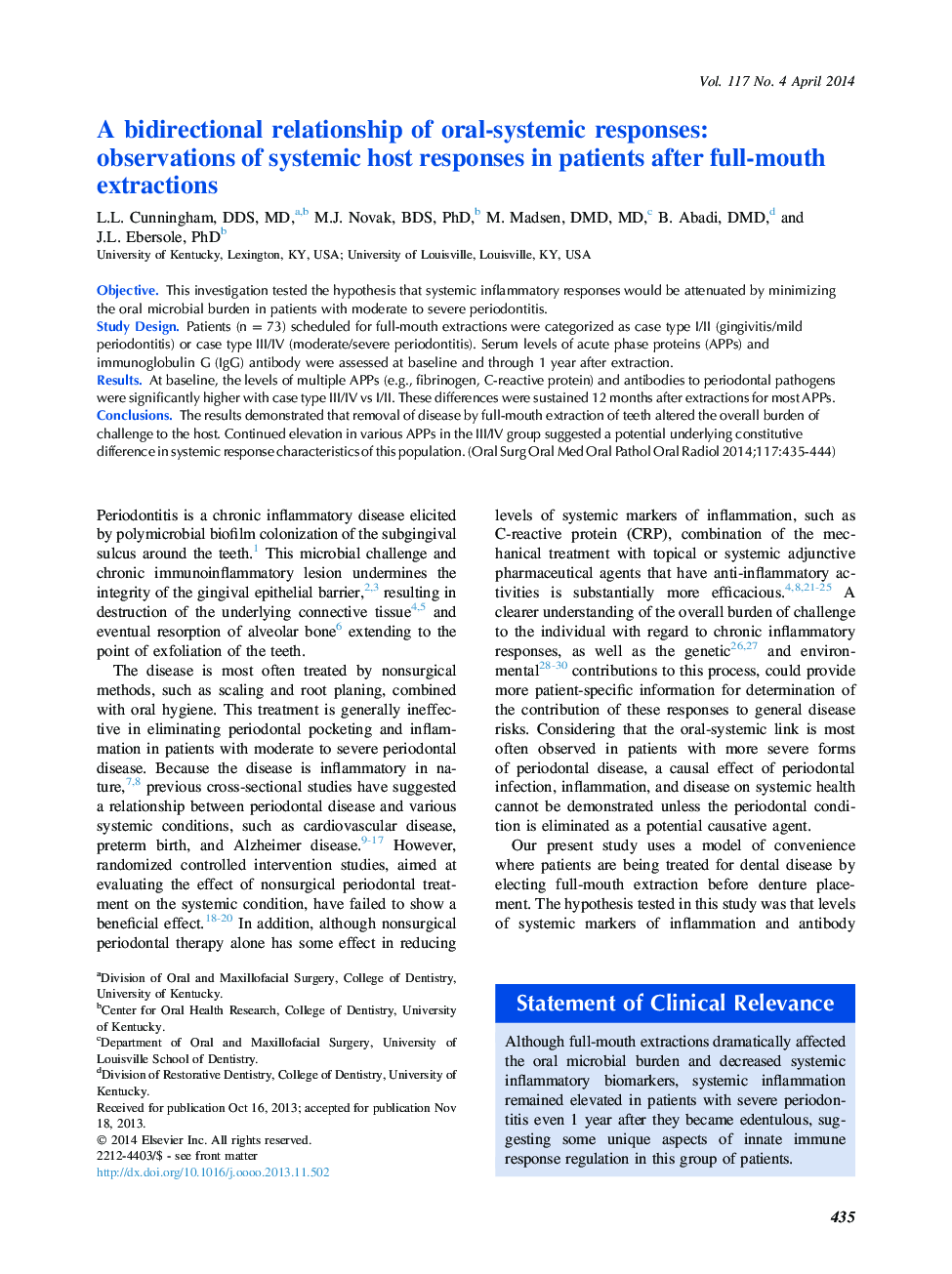| Article ID | Journal | Published Year | Pages | File Type |
|---|---|---|---|---|
| 6056881 | Oral Surgery, Oral Medicine, Oral Pathology and Oral Radiology | 2014 | 10 Pages |
ObjectiveThis investigation tested the hypothesis that systemic inflammatory responses would be attenuated by minimizing the oral microbial burden in patients with moderate to severe periodontitis.Study DesignPatients (n = 73) scheduled for full-mouth extractions were categorized as case type I/II (gingivitis/mild periodontitis) or case type III/IV (moderate/severe periodontitis). Serum levels of acute phase proteins (APPs) and immunoglobulin G (IgG) antibody were assessed at baseline and through 1 year after extraction.ResultsAt baseline, the levels of multiple APPs (e.g., fibrinogen, C-reactive protein) and antibodies to periodontal pathogens were significantly higher with case type III/IV vs I/II. These differences were sustained 12 months after extractions for most APPs.ConclusionsThe results demonstrated that removal of disease by full-mouth extraction of teeth altered the overall burden of challenge to the host. Continued elevation in various APPs in the III/IV group suggested a potential underlying constitutive difference in systemic response characteristics of this population.
